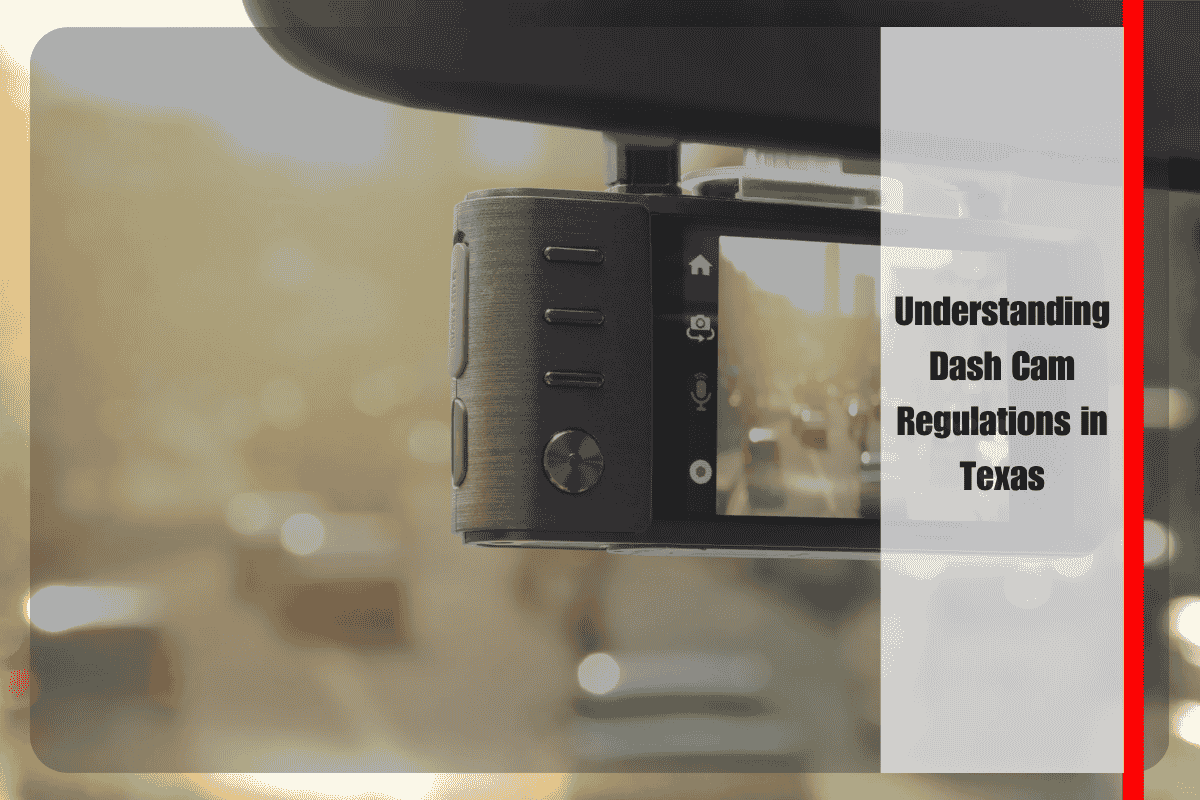Dash cams have become increasingly popular in recent years, especially for drivers who want to have a record of their driving experiences. Whether it’s for safety, insurance purposes, or simply documenting a road trip, many people are now installing dash cams in their vehicles. However, if you’re in Texas and thinking about using a dash cam, it’s important to understand the local regulations that may apply. This article will explain the dash cam rules in Texas, including where you can mount them, privacy concerns, and what you should keep in mind while using one.
Are Dash Cams Legal in Texas?
Yes, dash cams are legal in Texas. There is no state law that specifically bans the use of dash cams in vehicles. Texas law doesn’t restrict drivers from recording video while on the road, and dash cams are generally considered a useful tool for both personal and legal reasons.
However, there are certain guidelines and conditions you need to follow to ensure that your use of a dash cam is within the law. It’s important to know where you place the camera, how it might impact your driving, and other legal concerns related to video recording.
Where Can You Mount a Dash Cam in Texas?
While dash cams are legal, there are restrictions on where you can place the camera in your vehicle. In Texas, as in most other states, your dash cam must not obstruct your view while driving. The law requires that all drivers have an unobstructed view of the road, and placing a dash cam in a way that blocks your vision could lead to a citation.
Most drivers place their dash cams on the windshield behind the rearview mirror, which is usually considered a safe location that doesn’t obstruct the view of the road. Just be sure that the camera doesn’t block any sensors or the driver’s ability to see pedestrians, other vehicles, or traffic signs clearly.
Privacy Concerns and Recording Laws
In Texas, as a one-party consent state, it is legal to record audio or video in a public place as long as one party involved in the conversation (such as the driver) gives consent. This means that if your dash cam captures footage of other people or vehicles, it’s generally legal as long as you’re in a public space.
However, if you plan on recording audio inside your car, it’s important to note that Texas law still requires consent from at least one party. Recording conversations without consent could lead to legal issues, especially if the footage involves private conversations between individuals. If you do not want to record audio, you can disable the audio function on most dash cams to avoid any potential problems.
Dash Cams and Accidents
One of the most important uses of a dash cam is recording accidents. In the event of a collision or traffic incident, having footage of what happened can be extremely helpful in proving your side of the story, especially in cases where liability is disputed. Texas law allows you to use dash cam footage as evidence in court if needed. This footage can also be useful for insurance claims, as it provides a clear record of the event.
That said, while dash cams can be very helpful, it’s important to remember that they can only capture events that happen in your line of sight. They won’t capture details like the actions of pedestrians, drivers in blind spots, or other factors that may contribute to an accident.
Can Dash Cam Footage Be Used in Court?
Yes, dash cam footage can be used as evidence in Texas courts. As long as the footage was obtained legally, it can serve as valuable evidence in personal injury cases, accident claims, or even in criminal cases. However, for the footage to be admissible in court, it must meet certain requirements, such as being properly authenticated.
If you plan on using dash cam footage in court, it’s a good idea to make sure the camera is recording at a high enough resolution to capture important details, such as license plate numbers, road signs, and other crucial information.
In Texas, dash cams are legal, but there are rules that you need to follow to avoid legal issues. Ensure that your camera is mounted in a way that doesn’t block your view while driving. Be mindful of privacy concerns, especially if you record audio, and remember that the footage from your dash cam can be useful in court or for insurance purposes. As long as you follow these basic guidelines, you can safely use a dash cam in your vehicle in Texas.
Sources
[1] https://www.ddpai.com/blog/dash-cam-laws/
[2] https://www.expertmarket.com/dash-cams/dash-cam-laws-by-state
[3] https://www.smqlaw.com/do-dash-cams-offer-legal-protection-in-texas/
[4] https://injuryattorneyoftexas.com/texas-dashboard-camera-laws/
[5] https://www.simonpaschal.com/2023/09/12/use-of-dash-cams-in-work-vehicles-and-the-nlra/












